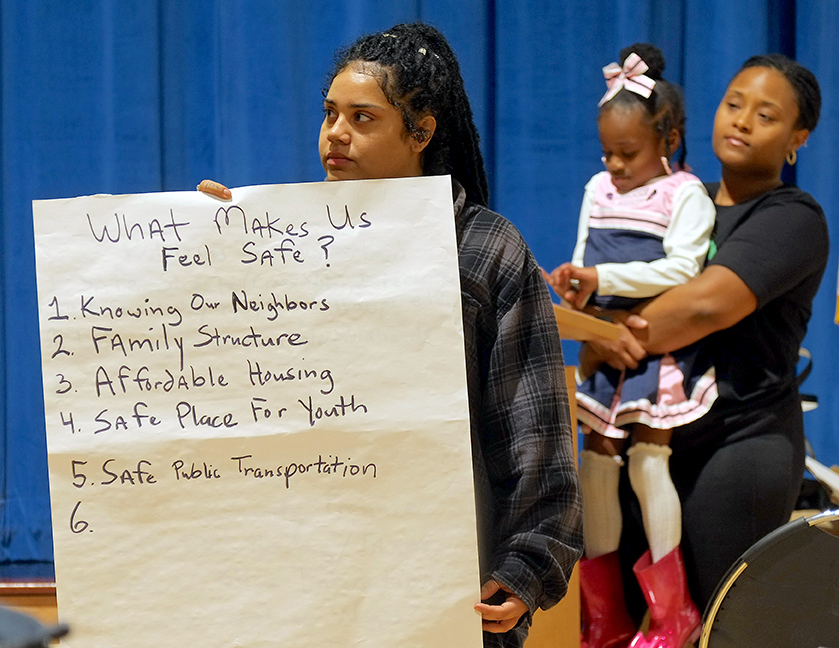By Mia Khatib
mia.khatib@triangletribune.com
RALEIGH — There are many different neighborhoods and communities across the city, but everyone has similar desires for community safety.
Raleigh residents united at Southeast Raleigh YMCA Jan. 25 to discuss what issues their communities are facing and how they can band together to bring change.
“Part of our life, making you feel safe, is knowing everything that’s going on. That means knowing your neighbors, knowing who’s across the street and knowing what’s going on around you,” Bishop Clarence McClain said at the community speak out, hosted by Refund Raleigh. “A lot of the problems you’re experiencing, not only in your neighborhood but neighborhoods around, is because people are not talking.”
Some recurring concerns included rising housing costs and taxes, over and selective policing, unsafe road infrastructure, food deserts, gun violence, littering and more. Residents expressed a need for more affordable and dignified housing, livable wages and job opportunities, safe and green community spaces, speed bumps and sidewalks, and mental health services.
“Communities that we used to live in are not the same, that changes drastically because of gentrification. We knew our neighbors back then when we were growing up, that whole concept has changed,” Anthony Pope, a member of Men of Southeast Raleigh, said. “You have people that are moving into the neighborhoods that really don’t understand the history or the legacy, particularly in Southeast Raleigh.”
Raleigh’s Black neighborhoods like Biltmore Hills and Oberlin have a history of organizing and revitalizing the community. Angaza Laughinghouse Sr., a founding member of Black Workers for Justice, said that’s what the community is lacking, neighborhood organizations, not homeowner associations.
“The essential question that needs to be asked is what has been the history of our neighborhood organizations and how were they able to make the changes that we enjoy today,” he said. “Some of the parks in our neighborhood didn’t look this good back in the ‘70s and ‘80s, but organizations in the various neighborhoods, particularly Black neighborhoods, were able to transform them.”
Refund Raleigh is working with the City of Raleigh to establish a community-led mental health crisis response unit. Next, social media manager Brea Perry said, they’re looking to create two community safety programs that mimic The Black Panther Party’s Seniors Against a Fearful Environment program and The Free People’s Ambulance service.
The local group also has dedicated leaders to neighborhoods across Southeast Raleigh. Siarra Scott, neighborhood ambassador for Poole Road/Sunnybrook Road areas, told The Tribune the goal is to help organize and empower the community, assist in building the necessary infrastructure to meet their needs, and eventually pass the baton onto an established neighborhood organization.
“Us coming together and talking about our issues, talking about our problems, and also discussing what we need to do to help get them resolved, that’s community safety,” Refund Raleigh member Nique Williams said.

